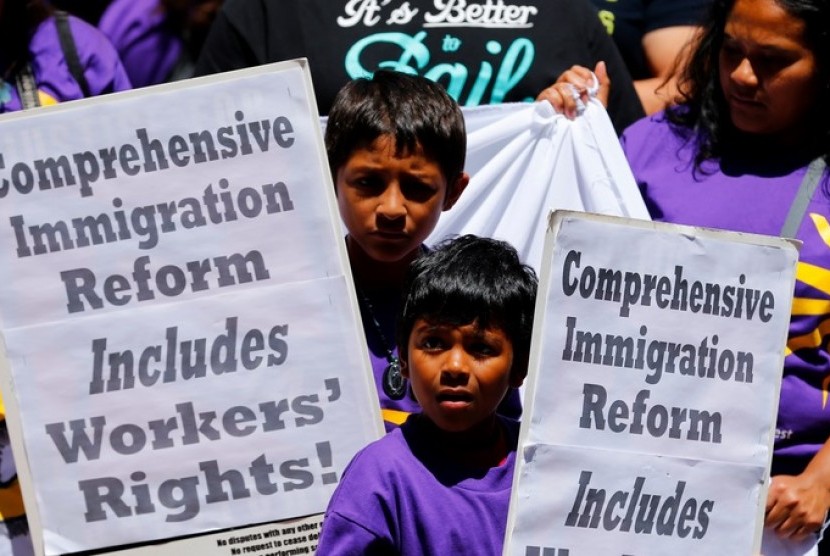REPUBLIKA.CO.ID, LUXEMBOURG -- European Union nations agreed on Thursday to speed up the deportation of failed asylum seekers as they took a harder line toward tackling the worst migration crisis since World War II.
Interior ministers from the 28-nation bloc endorsed a dedicated programme to send back those they described as economic migrants -- who are largely from poor African nations -- and not refugees from conflict-torn Middle East countries.
After months of tensions over the wave of nearly 600,000 people who have flooded into Europe this year, the EU is now taking a tougher stance by focusing on tightening border controls and reducing the incentive for people to come to the continent in the first place.
"Those who do not require international protection must return to their countries of origin," Luxembourg minister Jean Asselborn, whose country holds the EU presidency, told reporters after the talks.
Asselborn later joined EU foreign policy chief Federica Mogherini to launch talks with ministers and officials from the neighbouring Balkans countries as well as Syria's neighbours Turkey, Lebanon and Jordan.
These three countries host the largest numbers of Syrian and Iraqi refugees who are increasingly heading en masse to Europe via the east Mediterranean to Greece and up through the Balkans.
"We are in the same boat facing the same problems. We need a common approach," Mogherini told a press conference.
Mogherini called for increasing EU aid to the host countries around Syria as well as resettling in Europe refugees camped there. And she called for stepping up diplomacy to end the four-year war in Syria.
Alluding to European wars of the 1990s, Mogherini also said she is speaking privately to leaders of the Balkans to try "to calm down the situation as much as possible" after tensions involving Serbia, Croatia and Slovenia erupted over the refugee flows.


